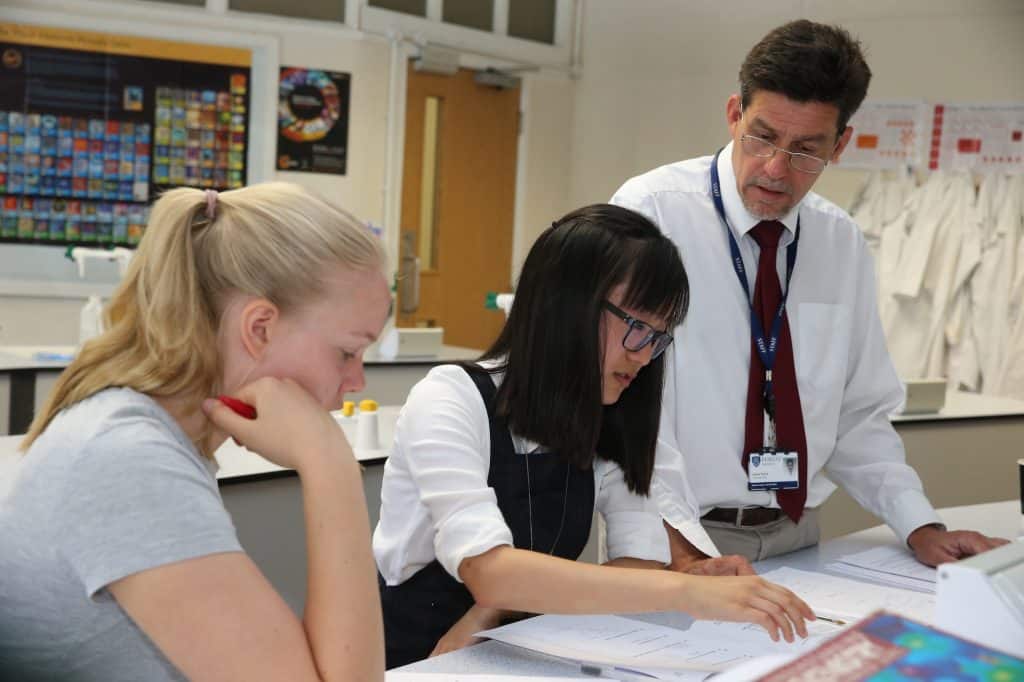In the Lower School – Years 7 and 8 – pupils at Forest study a broad and balanced scientific curriculum before specialising in Year 9 and following Biology, Chemistry and Physics separately. Science is taught in an interdisciplinary fashion, with the emphasis on problem solving, enquiry-based learning, critical thinking and developing an understanding of the scientific method.
The study of science is an interesting and awe-inspiring pursuit. Science instils a sense of intrigue and enables students to develop understanding and form questions based both on the knowledge they already have and the insight they wish to gain in the future.
In Lower School Science lessons at Forest, students will not only develop knowledge of science but will develop an understanding of science as a process. Students will develop the skills in asking questions, developing and using models, planning and carrying out investigations, analysing and interpreting data, using mathematics and computational thinking, constructing explanations, thinking critically and engaging in argument from evidence, and obtaining, evaluating, and communicating information.
Our rich curriculum includes:
- STEAM society
- Annual British Science Week events
- The Nancy Rothwell biological drawing award
Lower School Science Overview
Students study the following topics:
Year 7: Cells, Particle Model, Forces, Reproduction, Atoms and elements, Energy, Ecosystems
Year 8: Chemical reactions, Electricity and magnetism, Bioenergetics, Acids and Bases, Sound and light, Microbes and disease, Space.
Assessment
Students receive regular, formative feedback on their progress in science through the completion of progress quizzes, two per topic. These serve to enable students and teacher to identify and reflect on areas of strength and areas of weaknesses and to respond to close any gaps in understanding. Students sit two summative assessments per year, one at the start of Lent term and the Trinity end-of-year exam.
How can Science change the world?
Science is an intensely human, intensely creative enterprise as well as a global endeavour. Science dominates our lives and presents society with great opportunities and tremendous challenges. It is exciting and perplexing, troubling and enlivening. And science is a moving target – the more that knowledge is uncovered, the more questions are raised. There really is no end to its study. And this is what makes it such a fascinating and challenging subject to learn.



